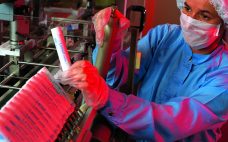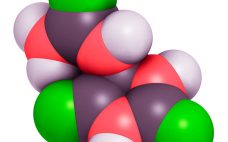Hitachi Chemical Co., Ltd. (HCC), a global service provider for the cell therapy industry through its PCT development and manufacturing service platform, today announced the completion of construction and opening of its Yokohama, Japan facility on October 11. This facility, as well as the existing two U.S. PCT facilities, will share the same global PCT service platform for quality and information systems, manufacturing operations, and technology transfer protocols, ensuring a seamless approach to serving clients and accelerating creation of a…
Thursday, October 19, 2017 Daily Archives
October From the Editor
Often I am dismayed to hear local news reporting of early stage clinical milestones for therapies that may still be years in development. I assume that those reporters and news editors receive pretty much the same press releases that we do here at BPI. But I worry that a more general readership hears only the hype, missing details of the process and time required for approval. More than one letter to the editor has opined that “delays” in bringing new…
October Spotlight
Introducing New Editorial Advisor Dr. Sanjay Nilapwar works as a purification process scientist in the novel-molecules group of Medimmune in Gaithersburg, MD, where he is also part of the platform chemistry, manufacturing, and controls (CMC) development team for antibody–drug conjugate products. In this position, he looks after the transitioning of ADC and monoclonal antibody (MAb) molecules as candidate drugs from development to the manufacturing stage, which encompasses cycles 1 and 2 purification process development, technology transfer and related CMC aspects…
Particulate Contamination in Single-Use Systems: Challenges of Detection, Measurement, and Continuous Improvement
Patients receiving particulate contamination through parenteral delivery of biopharmaceuticals presents a significant potential health risk. However, the severity of that risk often is unclear. It depends on the route of administration, dosage volume administered, particle properties and amount received, and the ultimate fate of particles within a patient’s body (1). The appearance of particulate contamination also can be a visible indicator of product quality. Consequently, when such contamination is discovered within biopharmaceutical manufacturing operations, often it triggers costly investigations and…
Recent Advances in Endotoxin Removal: An Upgrade to a Traditional Method and a New Adsorption Chemistry
Endotoxin contamination has been the bane of the bioprocessing industry since its inception. Endotoxins are everywhere: They are toxic and/or interfere with every type of therapeutic, diagnostic, and research product; they are indestructible within the limits of product tolerance; and they are difficult to remove (1–4). Beyond that, they interact with various biological species in ways that prevent accurate measurement (5, 6). Managing these issues has been a focus of the industry for at least half a century, yet it…
Bioprocessing in a Time of Digital Transformation
eve® is a modular software system for bioreactors and incubator shakers, rethinking bioprocess control to meet the needs of modern users: Fast, secure access to data via a web browser from anywhere, using a range of devices The move to Big Data Analytics for process data analysis A single platform for different types of information required by different users e.g. researchers, production and quality assurance A browser-based approach to accessing this information makes considerations such as operating system, size of…




